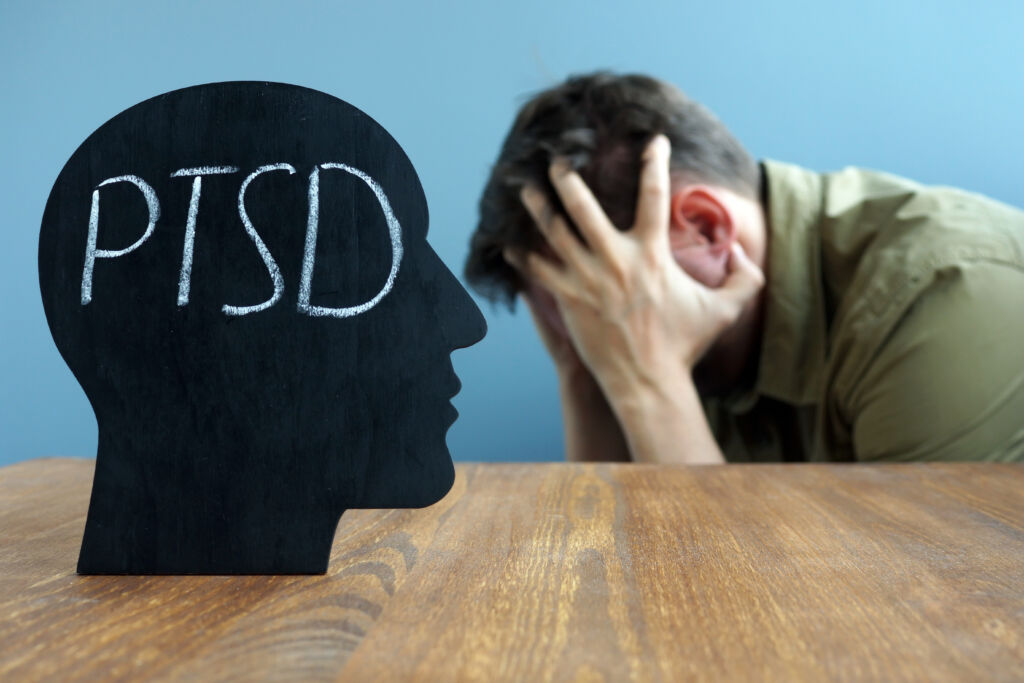
June is PTSD (posttraumatic stress disorder) Awareness Month. There are currently about 12 million people in the United States with PTSD. According to the National Center for PTSD, about 6 of every 10 men (60%) and 5 of every 10 women (50%) will experience at least one trauma in their lives. PTSD is more common among Veterans than civilians. At some point in their life, 7 out of every 100 Veterans (or 7%) will have PTSD. PTSD is also more common among female Veterans (13 out of 100, or 13%) versus male Veterans (6 out of 100, or 6%). Any experience that threatens your life or someone else’s can cause PTSD. The types of traumatic events that can cause PTSD include:
- Combat and other military experiences
- Sexual or physical assault
- Learning about the violent or accidental death or injury of a loved one
- Child sexual or physical abuse
- Serious accidents, like a car wreck
- Natural disasters, like a fire, tornado, hurricane, flood, or earthquake
- Terrorist attacks
War zone deployment, training accidents and military sexual trauma (or, MST) lead to PTSD. Veterans may experience the following reactions related to events such as war, mass violence or disasters:
- Feeling frustrated, sad, fearful, helpless, distressed (including moral distress), angry or betrayed
- Experiencing an increase in mental health symptoms like symptoms of PTSD or depression
- Unable to turn away from news or social media coverage
- Sleeping poorly, drinking more or using more drugs
- Trying to avoid all reminders or shy away from social situations
- Having more military and homecoming memories
- Worrying for the safety of people who were affected
- Feel guilt that they can’t do more about the situation
When PTSD isn’t treated, it usually doesn’t get better — and it may even get worse. Many people who have PTSD also have another mental health problem — like depression, anxiety, alcohol and drug abuse, or thinking about harming themselves or others. It’s also common to have problems at work, in relationships, or with your physical health. Sometimes, these problems happen because of your PTSD symptoms. For example, feeling numb and avoiding places can make it hard to have good relationships with your friends and family.
Overcome NJ offers drug and alcohol rehab and mental health treatment programs specifically for military veterans. Our clinical team and our veteran patients work to overcome stigmas and root causes of mental and physical pain, building a recovery program tailored to the specific concerns of visible and invisible wounds of battle. If you or someone you love needs help for drug or alcohol abuse, specialty treatment programs are available. Contact us today.
Some more general coping strategies for PTSD include:
- Engaging in positive, healthy activities that are rewarding, meaningful, or enjoyable
- Staying connected by spending time with people who give you a sense of security, calm, or happiness, or those who best understand what you are feeling
- Practicing good self-care by engaging in activities such as listening to music, exercising, practicing breathing routines, or spending time in nature or with animals
- Sticking to your routines and follow a schedule for when you sleep, eat, work and do other day-to-day activities
- Limiting news and social media exposure especially if it is increasing your distress
If you or your loved one is suffering from PTSD, don’t suffer in silence. Call us at (732) 505-7261 TODAY!

